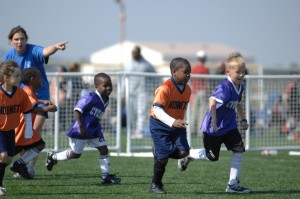
American children spend about 4 hours weekly participating in extracurricular activities. Some families spend much of their disposable income paying for them. But families with more material resources and more educated mothers tend to sign their kids up for longer and to spend more. Because participation is linked with positive outcomes in education and employment, it’s important to explain these social class differences and to improve access to activities.
Weininger, Lareau, and Conley found these participation patterns using nationally representative, longitudinal survey data and time diaries from 2002-2003. They explored two possible explanations for the class differences. First, parents of all social groups see kids’ participation in activities as equally important, but some families face greater barriers and constraints like lack of time and transportation. Second, parenting style varies by social class. Middle class parents use extracurricular activities as part of a “concerted cultivation” strategy to improve their educational and occupational outcomes, whereas working class and poor parents, after ensuring their children’s health and safety, prioritize letting their children develop naturally.
To test these explanations, the researchers compared the participation patterns of out-of-school and school-sponsored activities. Because schools often try to lessen the impact of family resources, finding less of a class gap in school activity participation would imply that across classes, kids’ extracurricular involvement is equally important. However, they noted very similar patterns in school and non-school activity participation. This shows that, while material resources matter, simply removing barriers does not equalize enrollment. Class-based cultural orientations still influence how much time and money parents spend on kids’ activities.
You can read the full article here:
Weininger, E. B., Lareau, A., & Conley, D. (2015). What Money Doesn’t Buy: Class Resources and Children’s Participation in Organized Extracurricular Activities. Social Forces.
Amy August is a graduate student in Sociology at the University of Minnesota who studies education, parenting and childhood, sports, and competition.




Comments